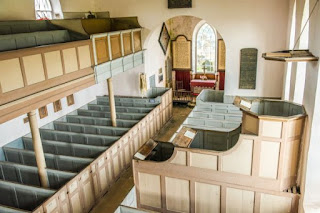'The ancient church first called these prayers Collects': on the Collects of the day at Matins and Evensong
There are those - 14 in total - "taken from ancient models, but considerably altered and improved by our Reformers, and the Reviewers of the Liturgy". Amongst these, however, is the replacement for the pre-Reformation Breviary collect for the Annunciation, which had referred to her intercession. It was replaced with a collect from the Gregorian Sacramentary, which had no such reference.
Then there were the collects collects "composed anew, and substituted in the place of those, that containing either false, or superstitious Doctrines, were on this account rejected". These accounted for thirteen of the Sunday collects and twelve for Saints' days (many of which referred to the intercessions of saints, of their merits, or had extra-scriptural references to martyrdom).
The greatest number, however, were the forty-six taken from the Gregorian Sacramentary:
The reader will observe, that the greater part of this class of Collects is found in Gregory's Sacramentary, which was composed before the year 600. All of these, therefore, are at least 1200 years old, and many of them are much older. For Gregory did not originally form the offices. He only collected, and improved them. To wave all other proof of this, we have his own testimony, given in vindication of his conduct. "I have followed," says he, "a practice common in the Greek church, and have altered some old Collects, and added some new, and useful ones." But the generality of the Collects in his Sacramentary he compiled from Liturgies, which, in his time, were esteemed ancient.
We might regard Shepherd's discussion of the collects as an invitation to reflect on them as a key liturgical expression of what it is to be Reformed Catholics. The fact that most of the collects - offered daily at Matins and Evensong - are from the Gregorian Sacramentary indicates how they unite us with the prayer of the patristic churches, rooting us in their Trinitarian confession. The revisions and new compositions of the 1549 liturgy (and thereafter) robustly ensured that all the collects would draw us to the Christological centre. In other words, the Prayer Book collects are an immensely rich source for the Church's prayer. When sung at Choral Matins and Choral Evensong, they also become a significant focus for contemplation.




Comments
Post a Comment